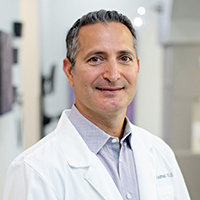Root Canal Post-Op Care
Dental surgery: no one really wants to go through it. Even though the thought of root canal treatment is less than pleasant, you can alleviate some of your concerns by being well informed. Let’s take a few minutes to look at what happens once your root canal procedure is over.
Root Canal Post-Op Care: What to Expect
As is the case with most dental procedures, some swelling and tenderness is completely normal. Your tooth has just been through something strenuous. The good news is that over-the-counter pain medication is usually effective in handling most discomfort.
A major perk of root canal recovery is the ability to quickly return to your normal life activities. There is generally no need for a long recuperation period.
After beginning your root canal, your endodontist may find it necessary to medicate the previously infected portion of your inner tooth. Your endodontist may prescribe a round of antibiotics to ensure that all trace of infection is gone.
If your endodontist decides that your tooth needs medication, your root canal procedure will be completed at a second appointment at a later date. The endodontist will put a temporary seal over the entry hole to the inner part of your tooth. Sealing the hole will ensure that the procedure site is kept clean and free of food until the permanent crown or filling can be added.
Root Canal Post-Op Care: What to Do
Phase one of a root canal typically involves hollowing out the inside of the compromised tooth. The pocket created by the removal of the inner pulp understandably leaves your tooth in a weakened state. If your endodontist prescribes medication rather than immediately filling/crowning, you must be careful not to bite or chew on the affected tooth.
If you experience any pain or swelling, please treat using over-the-counter pain medication. If you need a stronger medication for some reason, be sure to let your endodontist know. Additionally, if you are prescribed an antibiotic, make sure you complete all the doses.
Your tooth care regimen post-op should remain the same as pre-op. So long as you are careful around your sensitive tooth, you should carry on brushing, flossing and rinsing.
As you can see, recovery from a root canal takes just a little extra care. Normal routines don’t have to change drastically. Your mouth will let you know when it is fully healed.
Need a Root Canal? We Can Help You
Here at Ballantyne Endodontics, we use the most up-to-date resources when performing a root canal. We are proud to offer the Gentlewave Procedure which allows us to remove even the most microscopic bits of bacteria from your inner tooth and tissue. Using Gentlewave technology greatly lowers your risk of reinfection.
We also utilize 3D imaging to get the best possible view of your teeth. Additionally, every single dental procedure that we offer is performed with the aid of a special microscope. Our meticulous attention to detail ensures you a quality experience like no other.
Ballantyne Endodontics does more than just root canal treatment. We are fully qualified to assist you with several different endodontic therapies and procedures, including the following:
- Endodontic retreatment – recurring difficulties related to the teeth
- Apicoectomy – surgery of the gum tissue and tooth root
- Cracked tooth repair – major and minor
- Tooth issues created by traumatic injury – both child and adult
If you are in need of a root canal or other endodontic surgery, Ballantyne Endodontics would be pleased to partner with you in your time of need. When considering dental surgery, you want to know that you are working with the best the endodontic industry has to offer. If you have questions or concerns, please contact our caring and qualified staff today.

